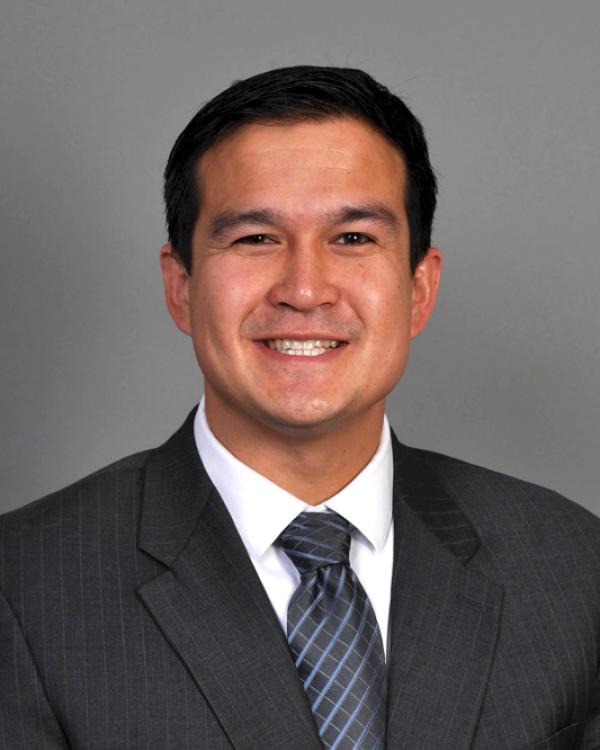
Ty Vernon of UC Santa Barbara’s Gevirtz School has been awarded a 2016 Hellman Family Faculty Fellowship. Vernon’s research project is entitled “Using electroencephalogram (EEG) technology to examine visual and auditory processing in children with autism spectrum disorder.”
Vernon’s research focuses on understanding and altering the social development of children with autism spectrum disorder (ASD) using a variety of interrelated methods. Historically, behavioral observation tools and psychological assessment instruments were the only tools available to characterize children with ASD, understand the nature of their strengths and vulnerabilities, and aid in the design of targeted intervention programs to help them return to a more typical developmental course. More recently, the field of autism research has shifted to the use of newer technologies to better understand the nature of the disorder. Functional magnetic resonance imaging (fMRI), electroencephalogram (EEG), magnetoencephalography (MEG), and sophisticated eye-tracking systems have been increasingly incorporated into efforts to characterize individuals with ASD and understand the neurological patterns and visual perception preferences associated with the disorder.
Vernon is aiming to initiate a new line of autism research using EEG, which is a noninvasive procedure that relies on placing a series of electrodes on the scalp to detect the electrical impulses of the brain. By placing an EEG cap on a child with ASD and then presenting them with specific auditory and/or visual stimuli, researchers can determine how a child’s neurological patterns differ from typically developing children and make inferences about how they process information. For example, we can determine if their event-related potentials (ERP; the electrophysiological signals obtained by EEG) differ in latency or amplitude in response to exposure to human motion or voices (when compared to children who do not have ASD). Such information is crucial for understanding how specific brain structures function and how one can possibly intervene to correct the underlying issue. Additionally, if an intervention component is included in a research trial, EEG can possibly be used to both predict the likely outcome of a particular child and also determine the extent to which neurological patterns become “normalized” after exposure to targeted intervention efforts.
Established in 1995 by Warren and Patricia Christina Hellman, the fund for these fellowships helps ensure that important research by junior faculty receives needed support. For many past recipients, the Hellman has played a critical role in their careers — leading to publication, important new contacts, research funding from other sources, or new research directions.
Ty Vernon is an Assistant Professor of Clinical Psychology within the Department of Counseling, Clinical, & School Psychology. His primary research interests lie in novel methods for measuring, understanding, and altering the social developmental trajectories of children and adults with autism.
Dr. Vernon has participated in the empirical investigation of several innovative social interventions, including an early social engagement paradigm for toddlers and their parents, group socialization interventions for school-aged children and adolescents, and vocational training programs for young adults with ASD. He concurrently serves as the Director of the Koegel Autism Center Assessment Clinic, which serves as a clinical and research hub for the detection and measurement of autism-related symptomatology in toddlers, children, adolescents, and adults. Through the use of behavioral coding, standardized assessments, eye-tracking technology, and neurophysiological measures, we aim to improve diagnostic precision, closely monitor response to intervention efforts, and increase our global understanding of autism spectrum disorders.
Dr. Vernon received his Ph.D. in Counseling, Clinical, and School Psychology (clinical emphasis) from the University of California, Santa Barbara in 2010. He completed his pre-doctoral internship and post-doctoral fellowship at the Yale Child Study Center (housed within Yale University’s School of Medicine). During his graduate and post-doctoral training, he acquired training in state-of-the-art autism intervention, assessment, and research methods from two world-renowned programs: UCSB’s Koegel Autism Center and the YCSC’s Autism Program.